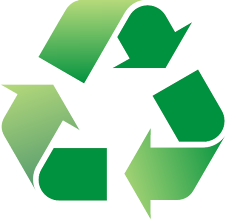Polysty rene is a thermoplastic substance, which is in solid (glassy) state at room temperature, but flows if heated above its glass transition temperature (for molding or extrusion), and becoming solid again when cooling off. Pure solid polystyrene is a colorless, hard plastic with limited flexibility. It can be cast into molds with fine detail. Polystyrene can be transparent or can be made to take on various colors.
rene is a thermoplastic substance, which is in solid (glassy) state at room temperature, but flows if heated above its glass transition temperature (for molding or extrusion), and becoming solid again when cooling off. Pure solid polystyrene is a colorless, hard plastic with limited flexibility. It can be cast into molds with fine detail. Polystyrene can be transparent or can be made to take on various colors.
 rene is a thermoplastic substance, which is in solid (glassy) state at room temperature, but flows if heated above its glass transition temperature (for molding or extrusion), and becoming solid again when cooling off. Pure solid polystyrene is a colorless, hard plastic with limited flexibility. It can be cast into molds with fine detail. Polystyrene can be transparent or can be made to take on various colors.
rene is a thermoplastic substance, which is in solid (glassy) state at room temperature, but flows if heated above its glass transition temperature (for molding or extrusion), and becoming solid again when cooling off. Pure solid polystyrene is a colorless, hard plastic with limited flexibility. It can be cast into molds with fine detail. Polystyrene can be transparent or can be made to take on various colors.Solid polystyrene is used, for example, in disposable cutlery, plastic models, CD and DVD cases, and smoke detector housings. Products made from foamed polystyrene are nearly ubiquitous, for example packing materials, insulation, and foam drink cups.
Polystyrene can be recycled, and has the number "6" as its recycling symbol. Polystyrene does not biodegrade, and is often abundant as a form of pollution in the outdoor environment, particularly along shores and waterways.
Form Produce
Polystyrene is commonly produced in three forms: extruded polystyrene, expanded polystyrene foam, and extruded polystyrene foam, each with a variety of applications. Polystyrene copolymers are also produced; these contain one or more other monomers in addition to styrene. In recent years the expanded polystyrene composites with cellulose and starch have also been produced.
This is the other form :
Extruded polystyrene Foams Expanded polystyrene foam Extruded polystyrene foam Copolymers Oriented polystyrene
Recycling
Currently, the majority of polystyrene products are not recycled. Expanded polystyrene scrap can be easily added to products such as EPS insulation sheets and other EPS materials for construction applications. Commonly, manufacturers cannot obtain sufficient scrap because of the aforementioned collection issues. When it is not used to make more EPS, foam scrap can be turned into clothes hangers, park benches, flower pots, toys, rulers, stapler bodies, seedling containers, picture frames, and architectural molding from recycled PS.
Recycled EPS is also used in many metal casting operations. Rastra is made from EPS that is combined with cement to be used as an insulating amendment in the making of concrete foundations. American manufacturers have produced insulated concrete forms made with approximately 80% recycled EPS since 1993. However, polystyrene recycling is not a closed loop, producing more polystyrene; polystyrene cups and other packaging materials are instead usually used as fillers in other plastics, or in other items that cannot themselves be recycled and are thrown away.
http://en.wikipedia.org/wiki/Polystyrene
Polystyrene can be recycled, and has the number "6" as its recycling symbol. Polystyrene does not biodegrade, and is often abundant as a form of pollution in the outdoor environment, particularly along shores and waterways.
Form Produce
Polystyrene is commonly produced in three forms: extruded polystyrene, expanded polystyrene foam, and extruded polystyrene foam, each with a variety of applications. Polystyrene copolymers are also produced; these contain one or more other monomers in addition to styrene. In recent years the expanded polystyrene composites with cellulose and starch have also been produced.
This is the other form :
Extruded polystyrene Foams Expanded polystyrene foam Extruded polystyrene foam Copolymers Oriented polystyrene
Recycling
Currently, the majority of polystyrene products are not recycled. Expanded polystyrene scrap can be easily added to products such as EPS insulation sheets and other EPS materials for construction applications. Commonly, manufacturers cannot obtain sufficient scrap because of the aforementioned collection issues. When it is not used to make more EPS, foam scrap can be turned into clothes hangers, park benches, flower pots, toys, rulers, stapler bodies, seedling containers, picture frames, and architectural molding from recycled PS.
Recycled EPS is also used in many metal casting operations. Rastra is made from EPS that is combined with cement to be used as an insulating amendment in the making of concrete foundations. American manufacturers have produced insulated concrete forms made with approximately 80% recycled EPS since 1993. However, polystyrene recycling is not a closed loop, producing more polystyrene; polystyrene cups and other packaging materials are instead usually used as fillers in other plastics, or in other items that cannot themselves be recycled and are thrown away.
http://en.wikipedia.org/wiki/Polystyrene



![Validate my Atom 1.0 feed [Valid Atom 1.0]](valid-atom.png)

No comments:
Post a Comment